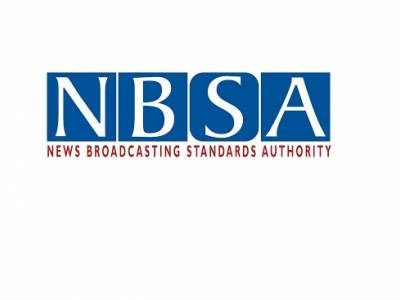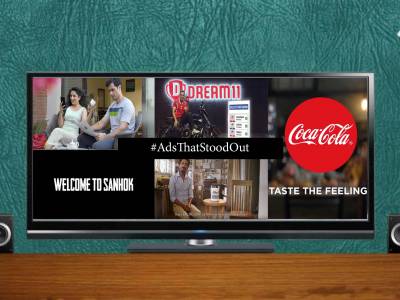ASCI upheld complaints against 95 out of 125 ads in December 2016
In December 2016, ASCI’s Consumer Complaints Council (CCC) upheld complaints against 95 out of 125 advertisements. Out of 95 advertisements against which complaints were upheld, 58 belonged to the Healthcare category, 10 in the Food & Beverages category, followed by 9 in Personal Care Category, 4 to the Education category, and 14 advertisements from other categories.
HEALTHCARE:
The CCC found the following claims of 58 advertisements in health care products or services to be either misleading or false or not adequately / scientifically substantiated and hence violating ASCI’s Code. Some of the health care products or services advertisements also contravened provisions of the Drug & Magic Remedies Act and Chapter 1.1 and III.4 of the ASCI Code. Complaints against the following advertisements were UPHELD.
- Mankind Pharma Ltd. (Heal-O-Kind Nanofine Gel): The advertisement’s visual showing a mother and daughter holding a cracker (phuljari), when read in conjunction with the advertisement headline “chodo jalne ki fikr, Diwali manao befikr” suggests that one may celebrate Diwali (bursting crackers) in carefree manner. ie. suggesting that even if one were to get burns, there is no need to worry thus implying a careless attitude and showing disregard for safety and encouraging negligence.
- Life fitness point: In the context of an advertisement for a gym , the visual showing a woman’s buttock (in non-Gym attire), read in conjunction with the tagline, “Boldest bums of South Bhopal now gymming a blast!”, is vulgar, and indecent which is likely in the light of generally prevailing standards of decency and propriety to cause grave and widespread offence.
- Dhanwantri Pharmaceutical (Swarn Madhu): The advertisement’s claim, “Removes - Weakness of brain - Weakness of body - Lack of Sexual power – Azoospermia, and makes you healthy”, were not substantiated with proof of product efficacy data, and are misleading. Also, specific to the claims implying cure for sexual problems (lack of sexual power), the advertisement is in breach of the law as it violated The Drugs & Cosmetics Act (D&C Act).
EDUCATION:
The CCC found following advertisements of educational institutes by 4 different advertisers were not substantiated and, thus, violated ASCI Guidelines for Advertising of Educational Institutions. Hence complaints against these advertisements were UPHELD because of unsubstantiated claims that they ‘provide 100% placement/AND/OR they claim to be the No.1 in their respective fields’:
Siva Sivani Institute of Management, Oriental Group of Educational Institutions, Datatec Group Of Institutions (Hannas Eng Inst) and Goodwill Institute of Security System and Automation Technology.
PERSONAL CARE:
- Emami Ltd. (Fair & Handsome 5 Action Fairness): The advertisement’s claim "long-lasting" implies that the product provides the claimed effect “fairness” for some extended time after its use has stopped or for some extended duration after the last application of the product. However this was not substantiated and is misleading by implication. There was also disagreement on the modification of the advertisement by way of addition of a disclaimer “on regular use” as this was in contravention of the ASCI code on disclaimers Clause 1. The complaint was Upheld.
- Emami Limited (Fair and Handsome): The advertisement shows the protagonist with dark complexion being unattractive to girls, implying people with darker skin colour to be inferior and likely to be ignored by the opposite sex. It was concluded that the advertisement stereotypes people based on skin colour, implying people with darker skin colour to be inferior and likely to be ignored by the opposite sex and people with fair complexion to be more attractive drawing female attention. The advertisement contravened Clause 1 of the Guidelines of Advertising for Skin Lightening or Fairness Improvement Products (“Advertising should not communicate any discrimination as a result of skin colour. These ads should not reinforce negative social stereotyping on the basis of skin colour. Specifically, advertising should not directly or implicitly show people with darker skin, in a way which is widely seen as, unattractive, unhappy, depressed or concerned. These ads should not portray people with darker skin, in a way which is widely seen as, at a disadvantage of any kind, or inferior, or unsuccessful in any aspect of life….”). The complaint was Upheld.
- Emami Limited (Fair and Handsome Fairness Cream): The advertisement’s claim, “breakthrough new formulation, “New”, was inadequately substantiated and is misleading as the formulation called as new was of year 2013 and hence was not “New” any more as per the ASCI guidelines for claiming “New”. Further the claim, “Long lasting fairness”, implies that the product provides the claimed effect “fairness” for some extended time after its use has stopped or for some extended duration after the last application of the product, which was not substantiated adequately over a reasonable time period by the advertiser by objective measurements and the claim is misleading by ambiguity and implication. Also, the qualifier “On regular usage, twice a day” was therefore considered to be in in contravention of the ASCI code on disclaimers Clause 1. The complaint was Upheld.
FOOD & BEVERAGES:
- Borges India Private Limited (Borges Olive Oil): The advertisement’s claim, “India’s No.1 Olive Oil”, was misleading by ambiguity as it depicted / was associated with all the variants of olive oil marketed by Borges India and not restricted to the product variant “Borges Olive Oil- Extra Light in Taste” alone.
- Pernod Ricard India P. Ltd. (Seagram’s Royal Stag): The advertisement depicting the Royal Stag brand name and visual is a surrogate advertisement for a promotion of a liquor product – Seagram’s Royal Stag. The advertisement is misleading by implication has reference to the words “Make it Large / Large jiyo” and contravened Chapters I.4 and III.6 (b) of the ASCI Code (“Whether there exists in the advertisement under complaint any direct or indirect clues or cues which could suggest to consumers that it is a direct or indirect advertisement for the product whose advertising is restricted by this Code.”). Also, the advertisement did not meet the requirements as per ASCI's Guidelines for Qualification of Brand Extension Product or Service and thereby contravened Chapter III.6 (a) of the ASCI Code (“Whether the unrestricted product which is purportedly sought to be promoted through the advertisement under the complaint is produced and distributed in reasonable quantities, having regard to the scale of the advertising in question, the media used and the markets targeted.”).
- Heinz India P. Ltd. (Complan Nutri Grow): The advertisement’s claim, “Complan Nutrigro has 11 immunity builders that increases immunity”, was not adequately substantiated in the age group of subjects for whom it is meant. Also, the advertisement targets normally nourished children (and potentially also certain categories like those with overactive immune systems) which was considered to be misleading by ambiguity as the advertised product may not build immunity in normal children with a normal diet.
OTHERS:
- Fena Ltd. (Advanced Fena Detergent Powder): The advertisement’s claim “India’s No. 1 Quality Detergent Powder” was not adequately and undisputedly substantiated and the TVCs are misleading by ambiguity and implication as the product ranking and the disclaimer attempts to hide material information with respect to the claim - i) the ranking being among other low cost detergents and not among ALL marketed products to claim “All India” and ii) it pertained to overall score of the product and not “Quality” as claimed. The disclaimer in the Hindi advertisement is not in the same language as the audio of the advertisement. Also, the disclaimers in the TVCs are not in compliance with ASCI’s Guidelines for Disclaimers.
- Hewlett Packard India Sales Pvt. Ltd. (HP Ink Tank Printing): The advertisement shows an A4 size Black & White borderless photograph of Eiffel Tower being printed and the protagonist states that “Eiffel Tower sirf 10 paise mein”. It was noted that the 10 paise printing is possible only for certain limited coverage of black text matter (document printing) and not for a photographic image contrary to what is being depicted in the advertisement. It was also noted that the test sample and the photo used in the advertisement are very different, especially as the test sample is not about photo prints - it contains text, presentation sheets, small images (all pages with lots of unprinted area). Therefore the visual use of a photograph in the advertisement and emphasis on “re-invent the value of 10 paise” is misleading by gross exaggeration. Also, the disclaimers in the advertisement are not in the same language as the audio of the advertisement (Hindi), the disclaimer do not appear in conjunction with the claim and the hold duration of the disclaimers in the advertisement is not in compliance with the ASCI guidelines.



















Share
Facebook
YouTube
Tweet
Twitter
LinkedIn